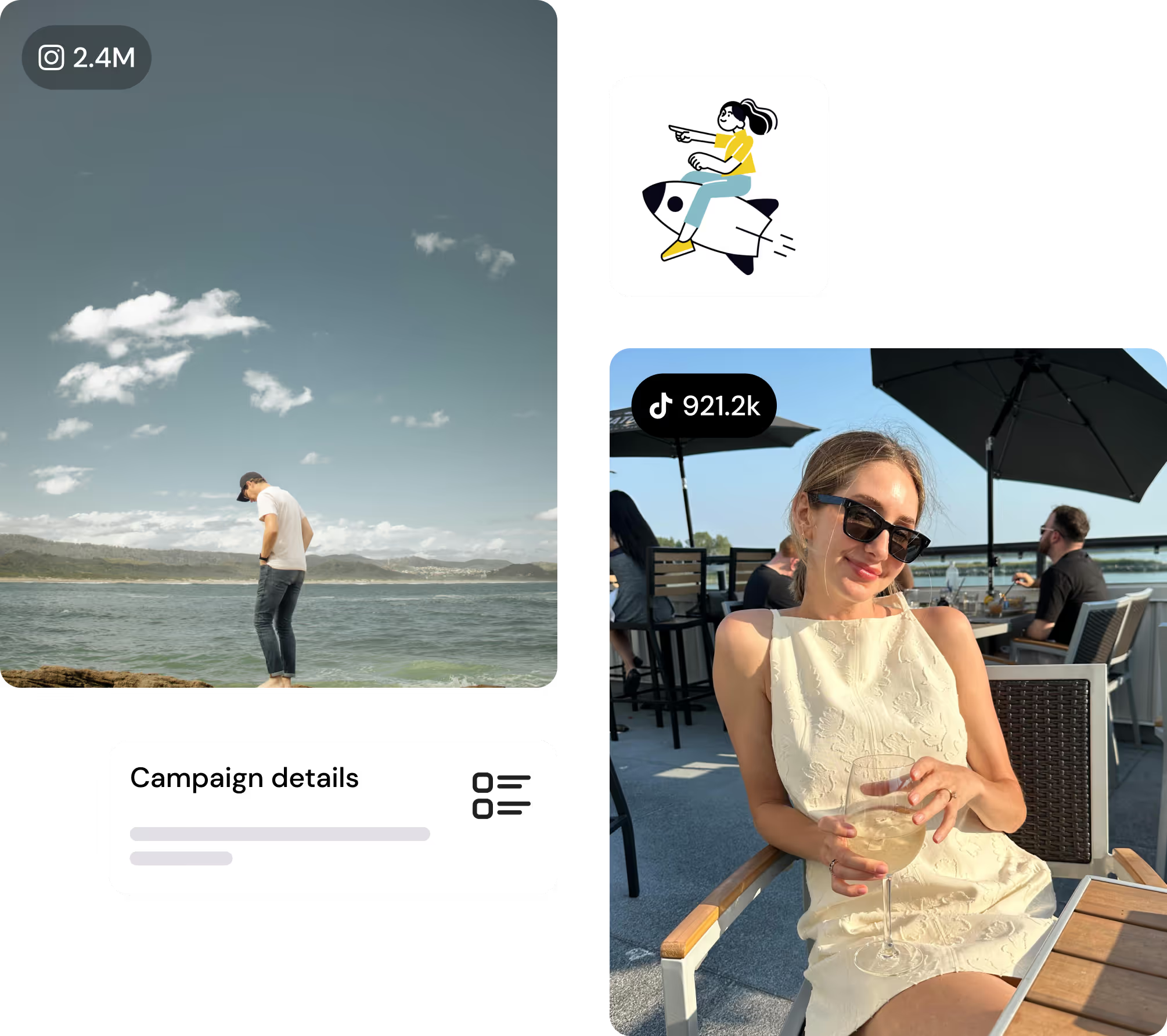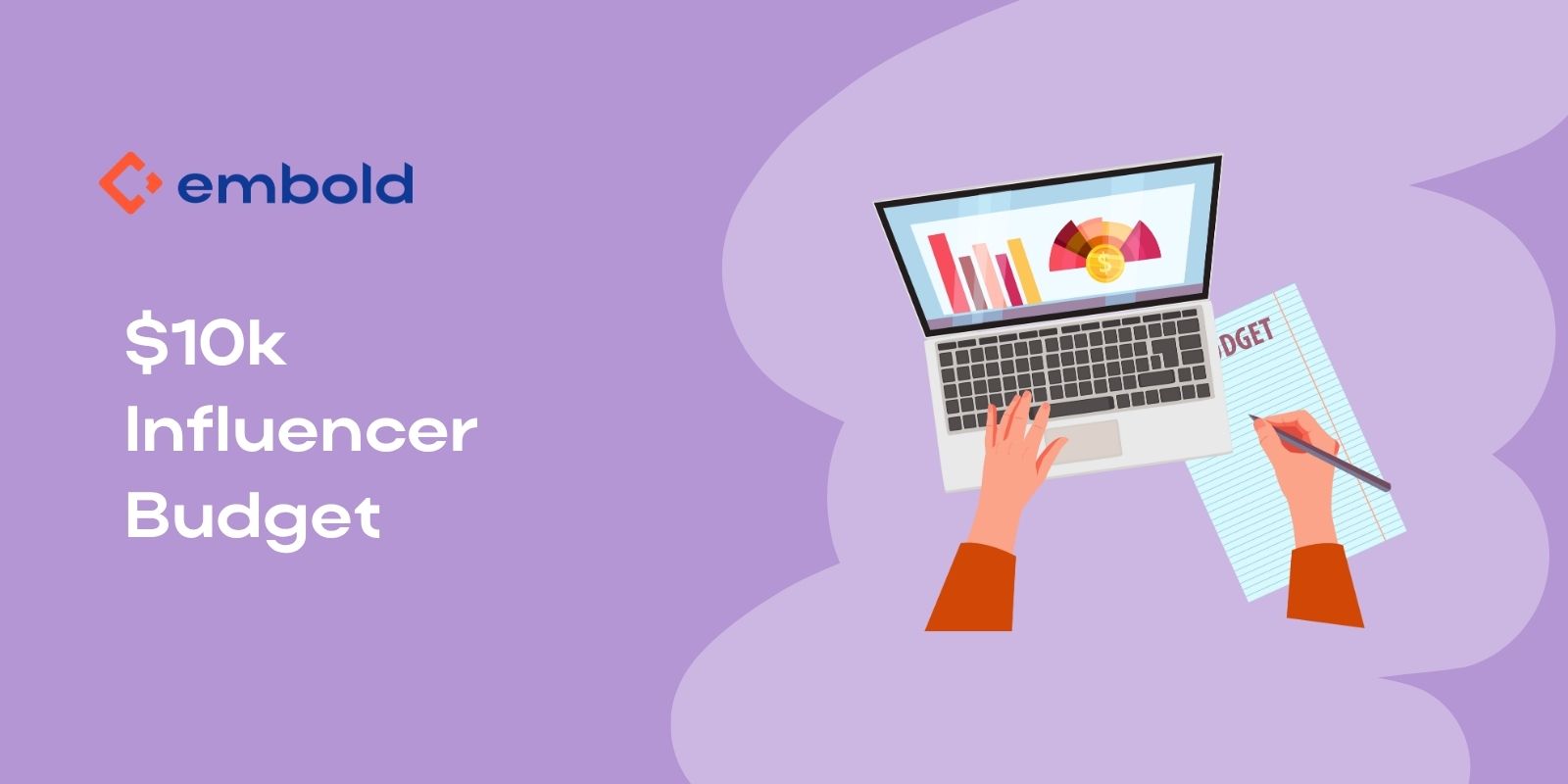
The Future of Influencer Marketing: A 2025 Outlook
.png)
Let’s peer into the future of influencer marketing with emerging trends, innovations, and paradigm shifts shaping the industry in 2025 and beyond. Experts predict that the influencer landscape is evolving from the rise of virtual influencers to the integration of augmented reality. We will see impressive shifts in how technology, consumer behaviour, and market direction will shape the new influencer marketing landscape. Whether you're a marketer, entrepreneur, or influencer, this guide gives a glimpse into the future and offers insight into preparing for this exciting new era.
The Rise of Virtual Influencers In 2025
We expect to see a significant increase in the use of virtual influencers in influencer marketing campaigns. These techniques have already started with virtual influencers such as Lu Do Magalu and Lil Miquela boasting millions of followers each. These computer-generated or AI-powered characters are gaining popularity due to their ability to be customized and controlled by brands. They offer a level of consistency that human influencers may need help to achieve. Of course, the significant downside includes taking away opportunities from real people and influencers. In the coming years, this will be an interesting area to navigate as virtual influencers increase.
Augmented Reality and Influencer Content
With the rise of augmented reality technology, we can also expect a shift in how influencer content is created and consumed. AR allows for a more interactive and immersive experience for consumers, and influencers can leverage this technology to create more engaging and impactful content. This will attract more followers and provide brands with a new way to showcase their products and services through influencer collaborations.
The Growing Importance of Micro-Influencers

While macro-influencers have dominated the influencer marketing space, micro-influencers are just as important, if not more impactful. These influencers may have a smaller following, but they have highly engaged and niche audiences. Consumers have become hyper-aware of sponsored content due to its saturation on social media feeds and platforms. AR can potentially mitigate this effect by increasing content authenticity and relatability in its approach, ultimately making it a valuable asset to brands.
The Power of Niche and Authenticity
Further in line with the previous point, niche and authenticity will continue to play a significant role in influencer marketing in 2025. Consumers are becoming more selective and discerning in the content they consume, and they are looking for authenticity and relatability from influencers. Brands will need to carefully select influencers who align with their values and brand image to maintain trust and credibility with their audience.
Data-Driven Influencer Marketing
Data-driven influencer marketing will become the norm in 2025 as brands and marketers become more data-savvy. Advanced analytics and tracking tools will allow brands to measure the success of their influencer campaigns more accurately. By extension, this will facilitate effective influencer partnerships to ensure a higher return on investment for brands.
The Shift Towards Long-Term Partnerships
In the past, influencer collaborations were often short-term and one-off partnerships. We can expect to see a shift towards long-term partnerships between brands and influencers. This will not only benefit brands by providing a more consistent and integrated approach to influencer marketing, but it will also allow influencers to build a deeper connection with their audience, resulting in more impactful campaigns. Brands are shifting toward long-term influencer partnerships, and PR and creator teams need to align for maximum impact
Influencer Marketing Becoming Mainstream
Influencer marketing will no longer be seen as a niche or experimental marketing tactic. As more and more brands begin to incorporate, maintain, or increase their influencer marketing strategies it will become a more mainstream strategy for brands to reach their target audience and promote their products and services. This will also lead to an increase in competition among influencers, making it essential for them to differentiate themselves and stand out online.
The Impact of Regulation and Transparency
An often overlooked component of influencer marketing is the rise in regulations and transparency. Governments and platforms are cracking down on misleading and deceptive social media practices, making it crucial for brands and influencers to follow guidelines and be transparent about sponsored content. This will not only protect consumers but also maintain the integrity of influencer marketing as a whole.
Take Home Message
The future of influencer marketing is multi-faceted, with advancements in technology, AR and how we approach influencer collaborations as an industry. As this space continues to evolve brands will find it advantageous to stay ahead of the curve and adapt to these changes. Embold strives to help brands navigate this landscape so that they can feel confident in their influencer marketing strategies.
These evolving trends now include B2B influencer programs — for a comprehensive analysis of how that’s developing, see How B2B Influencer Marketing Is Changing the Game.

The all-in-one creator marketing platform built for Canadian brands
Plan, launch, and measure all your creator campaigns from one place.
.png)



